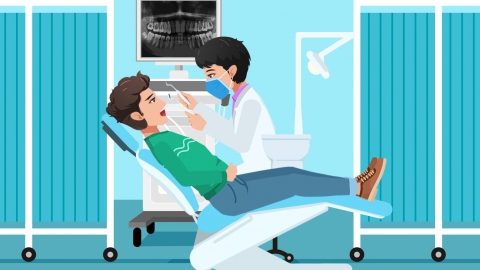Is it okay to have a tooth extracted on an empty stomach?
Generally, whether tooth extraction can be performed on an empty stomach depends on the patient's specific physical condition and the complexity of the procedure. If there are any discomforts or special health conditions, it is recommended to consult a doctor in advance. The detailed analysis is as follows:

If the patient is in good health, without underlying conditions such as hypoglycemia, anemia, or diabetes, and the tooth extraction is simple, the procedure may be carried out while fasting. However, the patient should inform the dentist about their fasting status beforehand. The dentist will closely monitor for symptoms such as dizziness or palpitations during the procedure and will pause immediately if any abnormalities occur to prevent accidents.
For patients with pre-existing conditions such as hypoglycemia, anemia, or diabetes, or when the extraction is complex, fasting is not recommended. In a fasting state, these individuals are more prone to hypoglycemic reactions, including dizziness, weakness, cold sweats, or even fainting. This not only interferes with the smooth progress of the extraction but also increases risks such as postoperative infection and delayed healing. Complex extractions place greater strain on the body, and fasting can further exacerbate this burden.
Before tooth extraction, it is advisable to communicate with the dentist about your health status, including any underlying diseases and recent dietary habits. If the extraction is appropriate, it is recommended to eat a moderate amount of light, easily digestible food prior to the procedure—avoiding both overeating and fasting. After the extraction, follow the doctor’s instructions for proper care, and seek medical attention promptly if abnormal symptoms such as persistent bleeding or severe pain occur.









